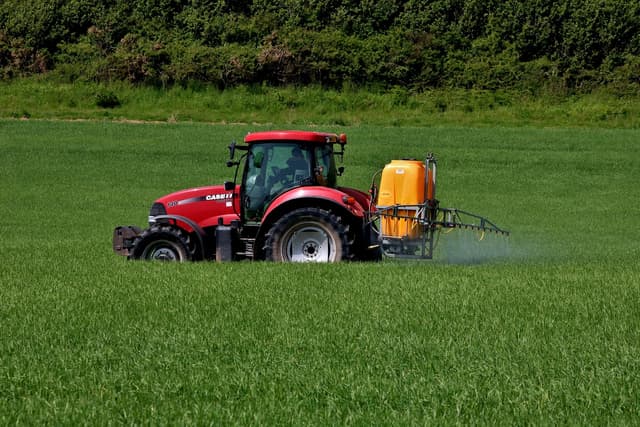Myths about teaching can hold you back
- Year 6
The future of food production
I can describe ways in which farming and food production have changed over time and investigate ways of taking action to make food systems fairer and better for our planet and its people.
- Year 6
The future of food production
I can describe ways in which farming and food production have changed over time and investigate ways of taking action to make food systems fairer and better for our planet and its people.
These resources were made for remote use during the pandemic, not classroom teaching.
Switch to our new teaching resources now - designed by teachers and leading subject experts, and tested in classrooms.
Lesson details
Key learning points
- Farming and food production have changed over time and there are advantages and disadvantages of these changes.
- The world faces different challenges in producing enough food and these problems are being overcome in various ways.
- Everyone can help make food systems fairer and better for our planet but some actions have a greater impact than others.
- It is useful to plan an action carefully before doing it.
- There are often different viewpoints about the causes and impacts of food issues, and potential solutions.
Keywords
Pesticides - Pesticides are substances that are added to soil or sprayed on plants to protect the plants from pests such as insects
Fertilisers - Fertilisers are substances that are added to soil or sprayed on plants to help them grow
Yield - Yield is the amount of food produced from a crop or from a number of animals reared
Greenhouse gas emissions - Greenhouse gas emissions are the release of gases into Earth's atmosphere that trap heat and contribute to climate change
Artificial intelligence (AI) - Artificial intelligence (AI) is the technology that makes machines or computers think more like humans
Common misconception
Limited understanding of how farming and food production are connected with climate change.
Unit 33 Lesson 7 explores food and climate change issues in more detail.
To help you plan your year 6 geography lesson on: The future of food production, download all teaching resources for free and adapt to suit your pupils' needs...
To help you plan your year 6 geography lesson on: The future of food production, download all teaching resources for free and adapt to suit your pupils' needs.
The starter quiz will activate and check your pupils' prior knowledge, with versions available both with and without answers in PDF format.
We use learning cycles to break down learning into key concepts or ideas linked to the learning outcome. Each learning cycle features explanations with checks for understanding and practice tasks with feedback. All of this is found in our slide decks, ready for you to download and edit. The practice tasks are also available as printable worksheets and some lessons have additional materials with extra material you might need for teaching the lesson.
The assessment exit quiz will test your pupils' understanding of the key learning points.
Our video is a tool for planning, showing how other teachers might teach the lesson, offering helpful tips, modelled explanations and inspiration for your own delivery in the classroom. Plus, you can set it as homework or revision for pupils and keep their learning on track by sharing an online pupil version of this lesson.
Explore more key stage 2 geography lessons from the Farms and factories: where does our food come from? unit, dive into the full primary geography curriculum, or learn more about lesson planning.

Equipment
Additional equipment will be needed if learners carry out their planned action.
Content guidance
- Risk assessment required - equipment
Supervision
Adult supervision required
Licence
Prior knowledge starter quiz
6 Questions
Q1.For every 1kg produced, which food produces the most greenhouse gases? Put these goods in order, highest emissions first.
Q2.Match the definition to the correct key term.
the average of weather conditions of a place over a period of 30 years
day to day changes in the atmosphere
the layer of gases that surround Earth
Q3.How can growing crops cause climate change?

Q4.Oil, coal and gas are all fuels.
Q5.Processing, packaging, transporting and selling food all have a footprint.
Q6. is the science and practice of cultivating soil and farming
Assessment exit quiz
6 Questions
Q1.Match the key term with the correct definition.
added to soil or sprayed on plants to protect them from pests
added to soil or sprayed on plants to help them grow
the amount of food produced from a crop or number of animals reared
Q2.How has farming changed over time?
Q3.Scientists are using AI to help improve farming techniques. What does AI stand for?
Q4.How is farming changing to cope with climate change?
Q5.Match these types of farming to their correct definition.
A way of producing food without the use of chemicals
A way of farming that aims to produce as high yields as possible
The growing of crops in towns and cities.


